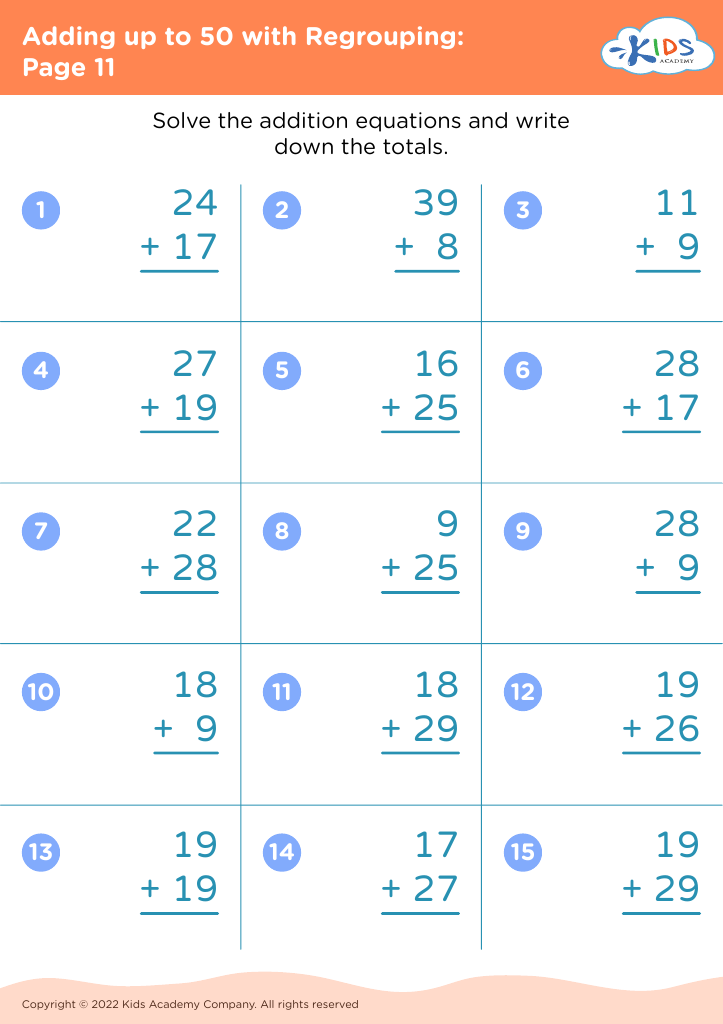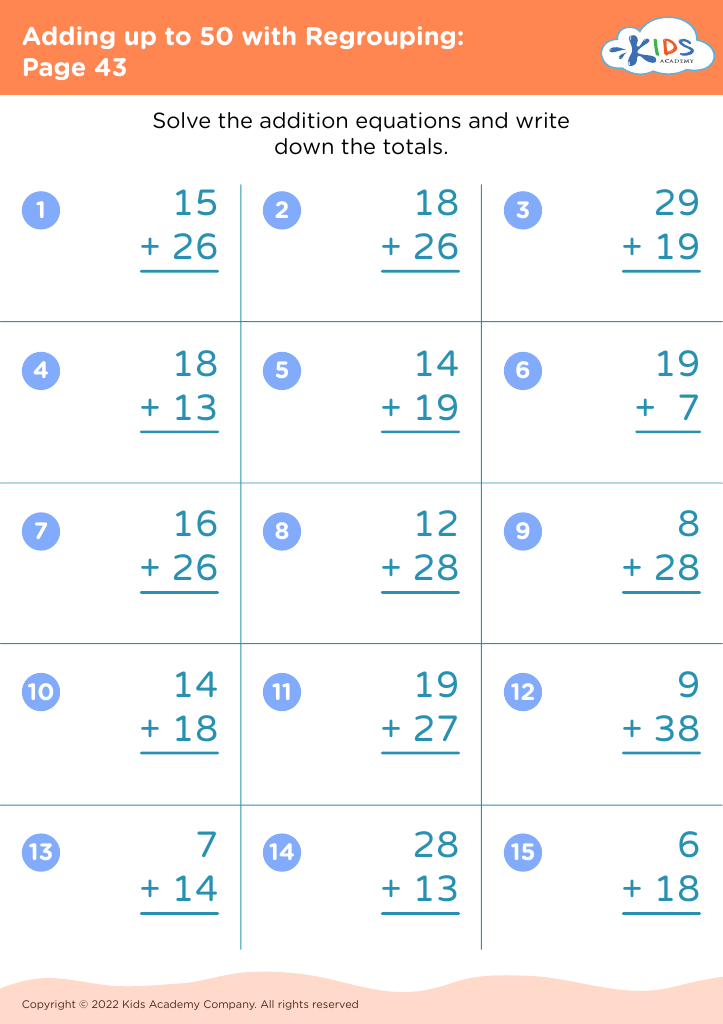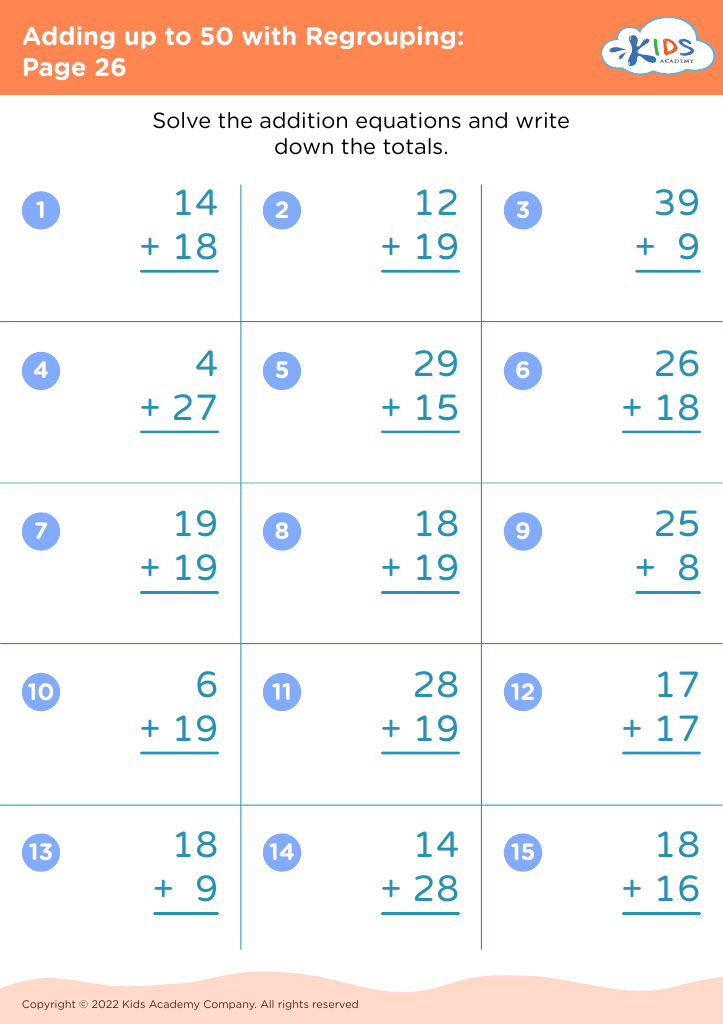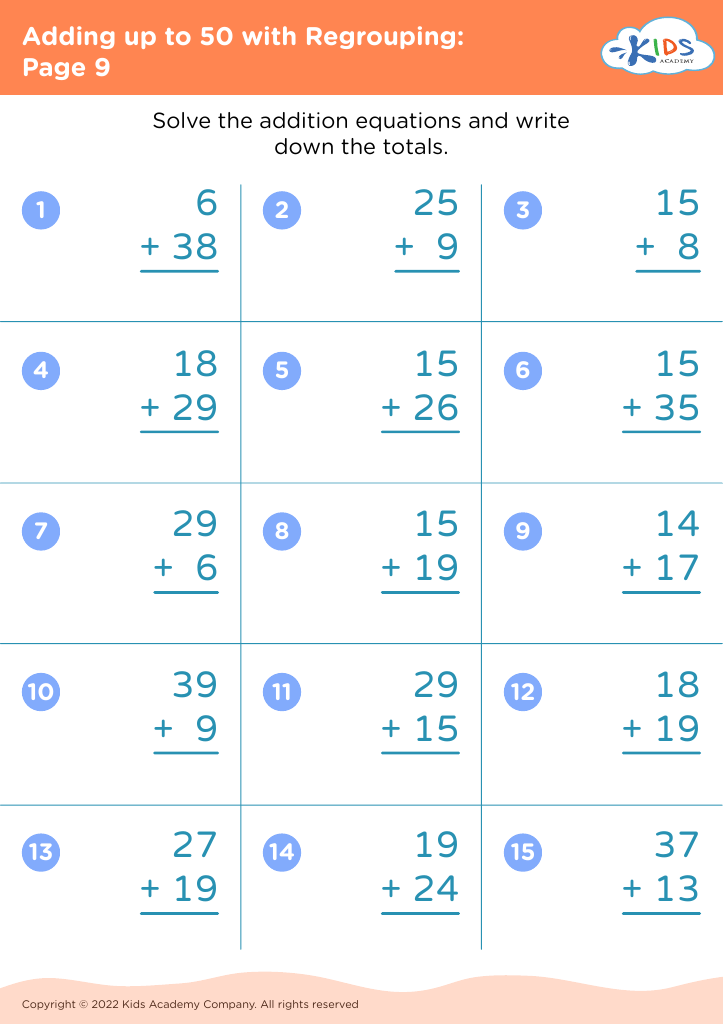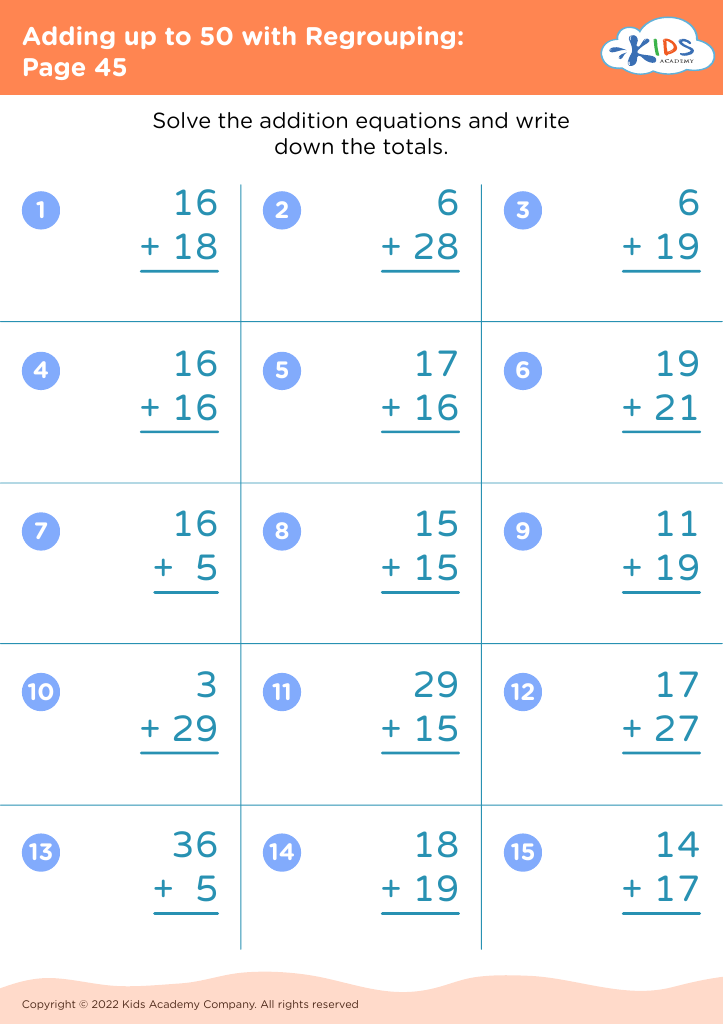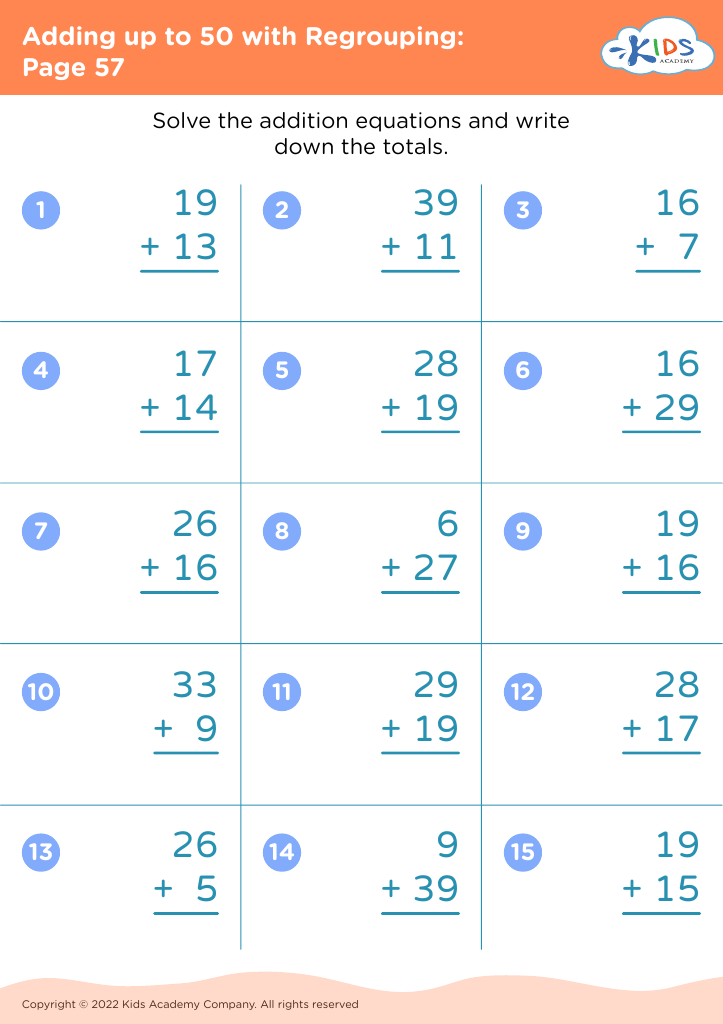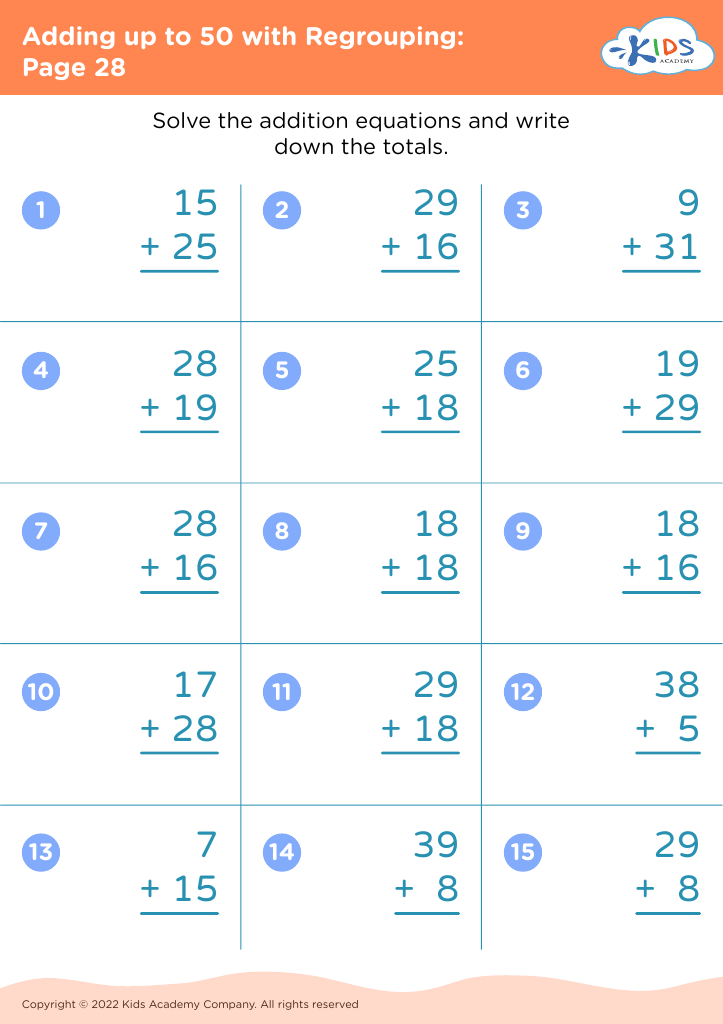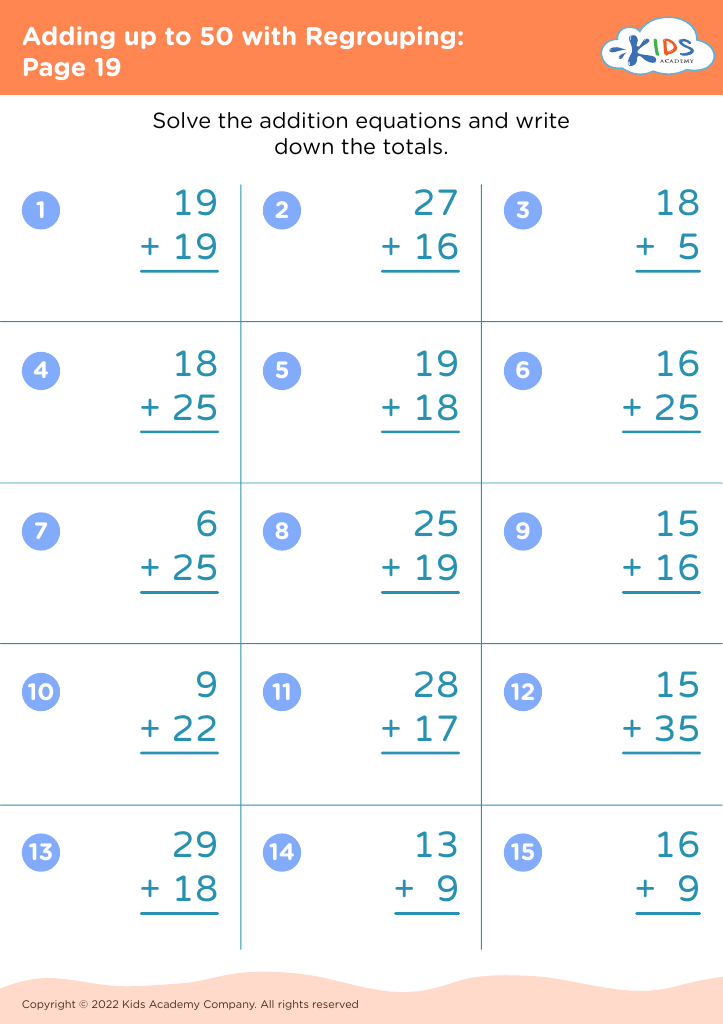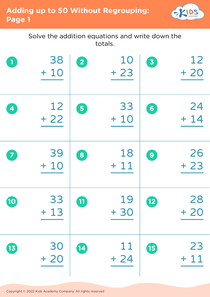Number Recognition Adding up to 50 with Regrouping Worksheets for Ages 6-8
14 filtered results
-
From - To
Discover our engaging "Number Recognition Adding Up to 50 with Regrouping" worksheets, specially designed for children aged 6-8. These educational resources help young learners enhance their number recognition skills while mastering the concept of addition with regrouping. Featuring interactive exercises and visually appealing illustrations, our worksheets transform learning into a fun experience. Kids will practice adding numbers up to 50, fostering both critical thinking and foundational math skills. Ideal for use at home or in the classroom, these printable worksheets provide a comprehensive approach to understanding key mathematical concepts, making learning enjoyable and effective. Perfect for budding mathematicians!
Number recognition and regrouping are foundational skills in early mathematics that significantly impact a child's future learning. For children ages 6-8, mastering these concepts enhances their ability to understand the place value system, which is crucial for more advanced math operations. Parents and teachers should prioritize number recognition and the process of regrouping when adding numbers up to 50 to ensure that students can effectively manipulate numbers, develop logical thinking, and build confidence in their mathematical abilities.
When children recognize numbers, they connect visual symbols to quantities, which lays the groundwork for problem-solving and analytical skills. Adding with regrouping introduces them to concepts that help them tackle bigger numbers and complex problems as they progress. Without a solid grasp of these fundamentals, students may struggle with higher-level concepts, leading to gaps in knowledge and decreased self-esteem.
Moreover, ensuring that children can confidently add numbers and regroup prepares them for real-life applications, from managing money to understanding quantities in everyday tasks. By fostering these skills early on, parents and teachers create a supportive learning environment that nurtures curiosity, resilience, and a love for math, promoting lifelong learning habits essential for success.



